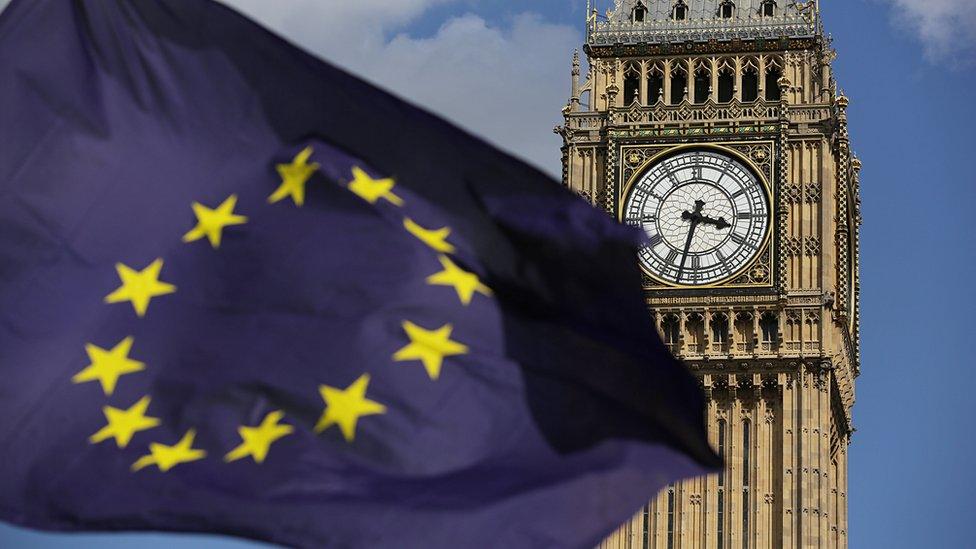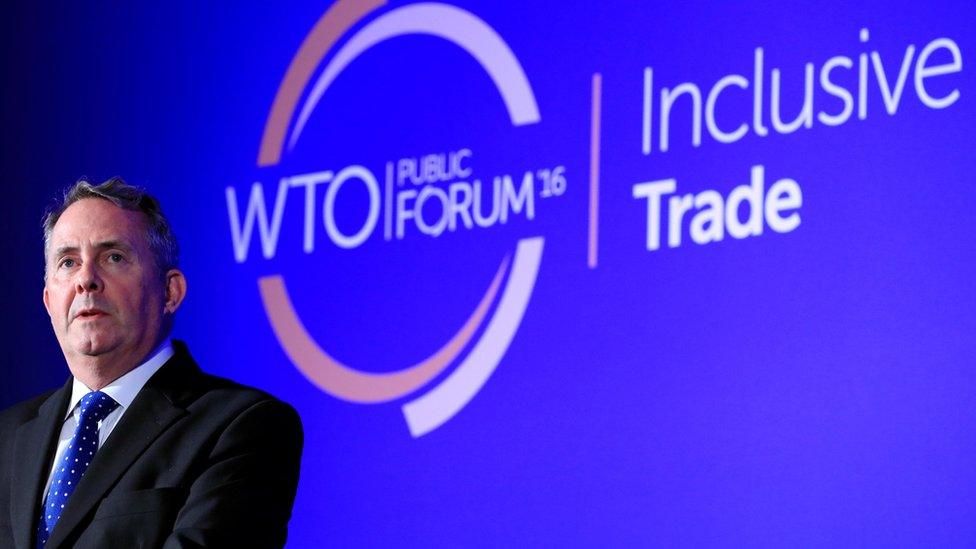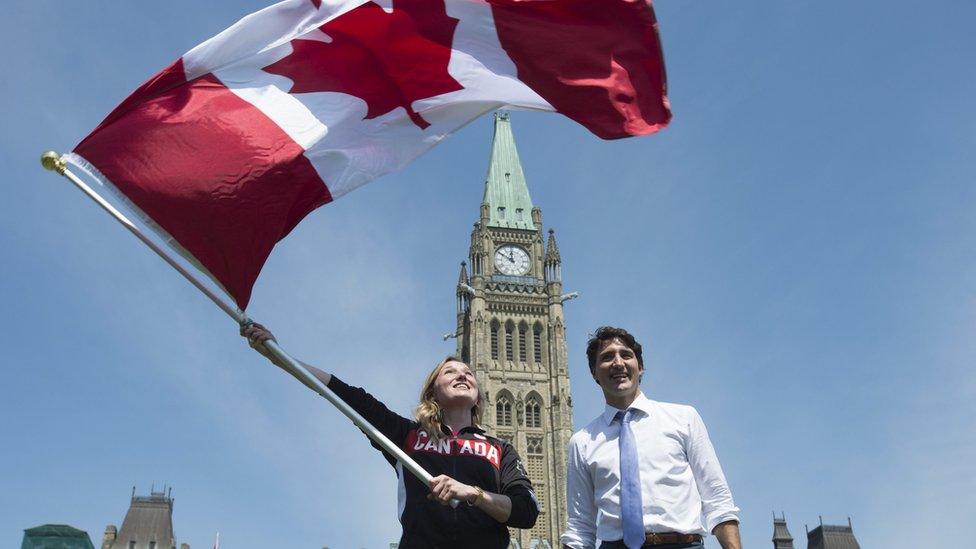What does 'hard' or 'soft' Brexit mean?
- Published

Like eggs and cheese, Britain's departure from the European Union supposedly comes in both hard and soft versions.
But - unlike household groceries - it is rather more difficult to define what "hard" and "soft" actually means when it comes to Brexit.
Supporters of a "soft" Brexit imagine a future where the UK retains some form of membership of the European Union single market in return for a degree of free movement.
Economic modelling suggests - though the models are disputed - such a route would be the least dislocating and have the lowest impact on growth.
'Clean Brexit'
For those who back a "hard" Brexit - or "clean" Brexit as supporters prefer - the better option is to leave the EU and the single market entirely and then have a relationship based - at least initially - on World Trade Organization rules.
At present, my government sources tell me, it is those that back a "hard" Brexit that have the upper hand.
The International Trade Secretary, Dr Liam Fox, will make a speech today outlining his vision for the UK as a global trading nation.
Thought of as a "clean" Brexiteer, he has certainly made warm noises about the WTO.

International trade secretary, Liam Fox, spoke at the WTO annual forum in Switzerland
"The UK is a full and founding member of the WTO," Dr Fox said in a little noticed speech in Geneva on Tuesday.
"We have our own schedules that we currently share with the rest of the EU. These set out our national commitments in the international trading system. The UK will continue to uphold these commitments when we leave the European Union."
When it comes to a "clean" Brexit, German business leaders, concerned about trade relationships with one of their biggest customers, are of a similar mind.
"It's better to have a hard Brexit that works than to have a fudge in the middle that has to be renegotiated or doesn't politically work and you have uncertainty lingering on," Markus Kerber of the German BDI group - the equivalent of the CBI - told the Today programme this morning.
'Canada plus'
Free movement governed by an agreement with the EU is not seen as a politically palatable option, I am told by those closely involved in discussions surrounding the UK's relationship with the rest of Europe.
That means membership of the single market is not possible, unless the EU itself agrees to water down the free movement principle for all members - a distant prospect at this stage.
In an interview with my colleague Katya Adler, Mario Renzi, the Italian PM, said Brexit would be a very difficult process but seemed willing to at least consider the relationship between membership of the single market and adherence to the free movement of people.
"I think this is a very interesting debate, because this debate will be a debate about the concept of rules in the EU," Mr Renzi said.
With such signals about a degree of flexibility, government sources have told me one option being considered is to seek to "grandfather" the present trade arrangements with Europe (that is the free movement of goods, services and capital) and then see what the EU's response is.
Would EU member states really start applying tariffs unilaterally, the question in Whitehall is asked, in the knowledge that the UK would respond in kind.
Once the Article 50 process is completed and Britain has left the EU, then the UK would open negotiations for a comprehensive free trade deal.
The government's target would be an agreement which is being described in Westminster as "Canada +", sources say.

Canadian prime minister Justin Trudeau is flying the flag for Canada in an EU trade deal
The EU and Canada are about to sign the Comprehensive Economic and Trade Agreement (CETA), which will eliminate nearly all tariffs between Canada and the EU.
The Canadian Prime Minister, Justin Trudeau, may visit Brussels later in the autumn to sign the document with a flourish, the clear signal being that the EU does do deals.
Although Canada+ is the model, Britain would need some significant variations - "bespoke", as many describe it.
Financial services, for example, would need to play a much larger role in any Anglo-EU deal, given the size and importance of the London market to both sides.
'Poker play'
This is where some element of sectoral "free movement" could be agreed and where "equivalence" would allow for relatively simple relationships between Britain and the EU - even with the former wholly out of the single market.
Senior banking figures I have spoken to make it clear that a free trade deal which includes financial services might not be ideal - most support remaining in the single market - but it is workable.
No one is pretending that any of this stuff is simple.
The CETA is over 1,600 pages long and has taken eight years to negotiate.
And Number 10 will be loath to allow any details of its negotiating position out in the open.
When you are playing poker, you don't want your opponents to know whether you have a couple of twos or a fistful of aces.